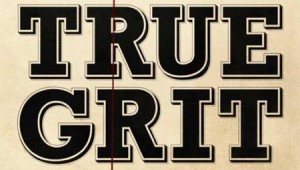One of my personal development processes, some of which I have described before, is an Evernote document which contains the character traits, attitudes, skills and abilities which I feel would be valuable to me as an entrepreneur. Whenever I come across a blog post or a talk which inspires me, I consider why that is, and write down what I need to do to be more like that person. My document is split into three sections. The main section is just a dump of ideas – I put my thoughts there whenever they arise. The top part of the document is filled with those traits that I want to develop over the course of this particular year. Finally the bottom part contains traits which I feel I have now developed – I keep them there as a reminder so I can see if I am starting to forget any of them.
Last year I focused on a few which I feel I have now incorporated. They included internalising the value of networking and meeting people, for example, and having done this I am now at the point where my next available lunch slot is in 11 weeks’ time. This year I have been focusing on some new ones, and as we come to the half-way point of the year, I thought I would write them down and elaborate on the reasons behind why I think they are vital for entrepreneurs, and anyone aspiring to success.
 1. To have absolute incorruptible Grit.
1. To have absolute incorruptible Grit.
Grit is a fascinating term. Its official definition is that it a positive non-cognitive trait that involves perseverance of effort to accomplish a long term goal no matter what obstacles or challenges lay within the path to it. A few years ago a number of professors at the University of Pennsylvania wrote a paper defining Grit and producing a test by which you can measure your own Grit score. When I originally took it I was somewhat disappointed.
My issues were never with completing what I started, but with being distracted by new projects. My interests have changed wildly, both in business and in the leisure activities I enjoy. I would obsess over certain ideas, but then soon find them rather unexciting.
In the end, I decided that going back to Cambridge would be the best way to build Grit. Using the memory of the discipline which I built up over that year, I am spending this year ensuring that I am never distracted, and that I always focus on the task that logically needs to be done next, not on the one which I feel like doing at the time. This way, there is no option to be distracted by new projects, and I am always moving towards the most important goal.
 2. To always be Curious.
2. To always be Curious.
This is something that has stuck with me since I first heard Joi Ito speak and read his story. Reading about the many different things he has done was very inspirational, but even more so was his advice about how he got to where he is – that we must retain the curiosity that we had as children, and that we must keep building things and learning how things work.
There was a time in my early twenties that I lost this curiosity. Throughout my childhood my favourite thing was Lego – I would always be building things. In my teenage years, it was computers. I would be building them constantly. And then when I first started in business, I was excited by the idea of building companies, and lost touch with the curiosity that had always inspired me to build smaller things. Over those years my world view became much more limited and with that came a lack of inspiration, a lack of creativity and a lack of confidence.
This year I am bringing back the Curiosity. I’ve persevered in getting understanding how web applications work, to the point of building HyperlinkedIn myself. I am back to constantly building computers. Everything I come across – whether it is a device, a business or even an individual – I am constantly trying to work out how and why they work. It has brought back the confidence to be able to understand and do anything, as well as a wealth of new ideas.
 3. To always go after the Cause of the problem.
3. To always go after the Cause of the problem.
I spent a few years recently doing nothing but fighting fires. There were some huge problems that needed resolving, but I had not been aware of how they had arisen, and this made it impossible to do anything other than try and fix the symptoms. A lot of time was wasted on this, as ultimately issues cannot be resolved if you go after them at the surface. By the time I realised, it was too late to do anything about it.
Jeff Bezos once wrote in a letter to the Amazon shareholders that while walking through one of his fulfillment centres a Kaizen expert turned to him and said “I’m in favour of a clean fulfillment centre, but why are you cleaning? Why don’t you eliminate the source of dirt?” As Jeff Bezos wrote – hearing it, he felt like the Karate Kid. Reading this, so did I.
This kind of thought may seems strange to others, but it demonstrates absolute commitment to solving problems at their root. Even with something as obvious as dirt, Jeff Bezos and his team still refused to just deal with the symptoms. This year I am applying this approach to everything. Whenever something goes wrong, I immediately work out why, and then change it. If you want to create something truly amazing, it is the only way.
----Find out more on the about Ivan Mazour page.
And watch Ivan Mazour's TEDx Talk - "Why we shouldn't be scared of sharing our personal data".

3 comments
Whenever I read your work, I feel like it’s me but just a few steps ahead. I love how you spend time to improve yourself as a person, that is really inspiring.
It reminds of something I read in ‘Think and Grow Rich’ where former USA President is given as an example of someone who changed their character. You always forget good practice after a while so it was great to be reminded it of it here.
I would really like to hear how you manage to book your lunches for 11 weeks in advance. I would love to be that popular !
On my list of people to catch up with regularly, I currently have two people I meet monthly, 41 people I meet quarterly, and 24 that I meet annually. This list is expanding rather quick as well, so that’s why I wrote the HyperlinkedIn.com app for myself so I can keep on top of it. So that in itself takes up two thirds of weekday lunches. Then add in introductions, as each person you meet usually introduces someone else, and then potential clients, and you soon run out of potential lunch slots. Then I ended up starting early after-work dinners, but am now running out of these too.. It’s a system, rather than social popularity, and one that requires quite a lot of energy to set up and maintain, but is vital in today’s hyperconnected world. Think and Grow Rich is now on my reading list – thanks for the tip!
Awesomeness… I think I need to get that organised with my networking, but if I ate out that much I would be twice the size I am now… but that is a whole other article!